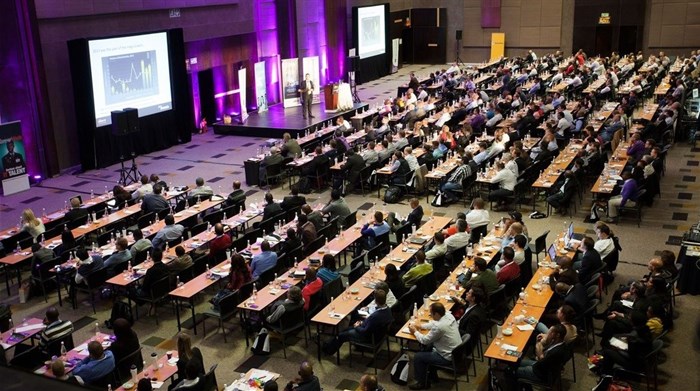
Top stories






More news


Marketing & Media
Ads are coming to AI. Does that really have to be such a bad thing?













"We have moved from position 186 to 113 globally, while also improving our ranking in Africa from position five to two. Now our team is aiming for a position in the top 100 globally in 2018 while retaining the same spot (two) in Africa - there’s no going backwards," adds Khorommbi.

ICCA Rankings are announced annually by the ICCA, based on the number of rotating international association meetings hosted in a particular destination. It is the only association that comprises a membership representing the main specialists in handling, transporting and accommodating international events. ICCA's network of almost 1,000 members spans the globe, with members in over 90 countries worldwide.
• Rotate between at least three countries and
• Attract at least 50 participants and
• Be held with a certain frequency (ad hoc meetings are not registered).
"Joburg’s improvement in its ICCA rankings is thanks to a collaborative effort with our industry partners, peers and stakeholders and confirms the city’s status as a strongly competitive, global business events destination," says Khorommbi.

Hosting events has a direct and positive economic and development impact on the city and all who work and play within its boundaries.
Economic benefits include spend, job creation and changing the perceptions of visitors to the city. Large business events often attract between 500 and 1,000 international registrants, who generally stay for between three and six days, with a direct or indirect contribution to the tourism value chain; including accommodation, restaurants, tourist attractions and transport services.
Business tourism creates an ideal leveraging point to promote the city, not only as a premier destination for business (as the continent’s financial and commercial hub) but also as an all-year-round destination for leisure, lifestyle, sports and mega-events and, more importantly, as a centre for trade development and investment purposes. Attracting large international conferences and events to the city facilitates the immediate flow of trade relations between Johannesburg and other cities, countries and industries. Moreover, there is an exchange of professional and intellectual capital and expertise, which comes about as a result of hosting each event in Johannesburg.
Joburg Tourism`s operations are guided by the city’s 10 Priority Implementation Plans (PIPs). The tourism department contributes significantly to two of them, namely: 5% economic growth and job creation - reducing unemployment to under 20% by 2021.
The Department of Economic Development’s strategic objective is promoting Johannesburg to be the number one African destination of choice for both business and leisure in an effort to:
• Improve seasonality, length of stay and tourist spend during visits to Johannesburg.
• Improve the diversity of the tourism offering in Johannesburg.
• Build a positive image and/ or perception for the city among local, national and international audiences.
Visitors to big-ticket events also benefit from the local tourism scene, which has boomed over the past decades and has seen an impressive increase in the number of visitor attractions, precincts, museums and sites highlighting Johannesburg’s complex and fascinating story. These include the Origins Centre, Hector Pieterson Memorial and Museum, Museum Africa, Montecasino and the SAB World of Beer.